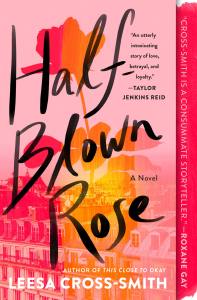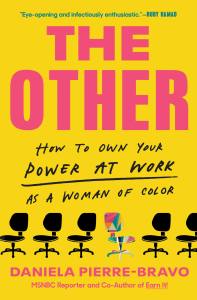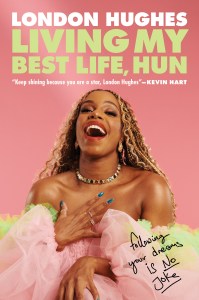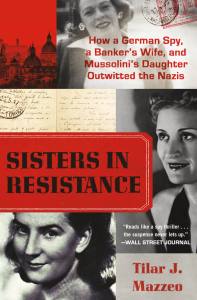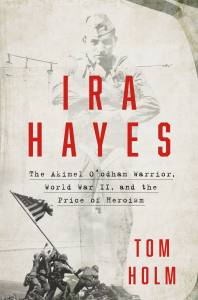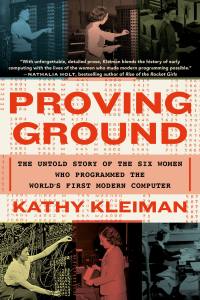Barbenheimer Book Recommendations!
Getting ready for your Barbie/Oppenheimer double feature? Whether you’re seeing Barbie first or Oppenheimer first – we’ve got the book recommendations for you! Plus, enter for your chance to win bundles with our recommendations for each movie!
Enter to win the bundles!

Barbie Book Recommendations!
Vincent, having grown up as the privileged daughter of artists, has a lovely life in many ways. At forty-four, she enjoys strolling the streets of Paris and teaching at the modern art museum; she has a vibrant group of friends; and she’s even caught the eye of a young, charismatic man named Loup. But Vincent is also in Paris to escape a painful betrayal: her husband, Cillian, has published a bestselling book divulging secrets about their marriage and his own past, hinting that when he was a teenager, he may have had a child with a young woman back in Dublin—before he moved to California and never returned.
Now estranged from her husband, Vincent has agreed to see Cillian again at their son’s wedding the following summer, but Loup introduces new complications. Soon they begin an intense affair, and somewhere between dinners made together, cigarettes smoked in the moonlight, hazy evenings in nightclubs, and long, starry walks along the Seine, Vincent feels herself loosening and blossoming.
In a journey that is both transportive and intimate, Half-Blown Rose traverses Paris, art, travel, liminal spaces, and the messy complexities of relationships and romance, with excerpts from Cillian’s novel, playlists, and journal entries woven throughout. As Cillian does all he can to win her back, Vincent must decide what she wants . . . and who she will be.
This important book focuses on how women of color, children of immigrants, and other minoritized groups are predisposed to workplace imposter syndrome—and charts a path forward for self-advocacy and advancement.
For women of color and children of immigrants, who are the “the other” at work, there’s a different threshold of belonging that creates a false feeling of inadequacy. It can lead to being overwhelmed, overworked, and overlooked. The Other shatters the unspoken expectations for you to stay in your lane and gives you the tools to build unshakable confidence and a career that excels–on your own terms.
Bestselling author and MSNBC reporter Daniela-Pierre Bravo spent many years undocumented and in the shadows as an immigrant from Chile, working odd jobs to pay her way through school. Like many other women of color she became an expert shape shifter in order to chameleon her way around professional environments that felt out of reach. When Daniela became a DACA recipient, she finally felt that she’d made it, rising through the ranks in her career. But she quickly realized that no matter how much success she achieved, she always felt she had to prove her worth as “the other.”
In The Other, Daniela shares her journey and those of other women to help you recognize your power in the workplace outside of the white gaze. She drives you to reshape the way you think about career advancement without losing your sense of identity and helps you see how to use your differences as an advantage. Smart, revealing, and loaded with practical steps, The Other is a framework for how to effectively advocate for yourself, become your biggest believer, claim the spaces in your career that are rightfully yours.
From stand-up comedian, actress, and host of The Netflix Afterparty, London Hughes, comes an uplifting and raucously funny memoir to show you how to ditch the self-loathing, start the self-loving, and engage with your inner winner.
London Hughes has come a long way from secretly writing Frasier fan fiction alone in her bedroom. Between her breakout Netflix comedy special, To Catch a D*ck, her dating podcast “London, Actually,” and her award-winning TV performances, London the South Londoner has taken the entertainment world by storm. And now, in this sassy, brash, fearless, and funny memoir, London is ready to inspire women of all ages and races with her story—because London is absolutely the best person in the whole wide world to take you on a wild journey of self-discovery. As she herself puts it: “I’ve always been funny. I’ve always been cute. I’ve always been confident. I was born to do this shit.”
All her life, London longed to be a badass—an awesome bullet-proof woman who nobody could mess with. At a young age, she made sure she was ready to become a star, developing her own living-room popstar training regimen to prepare for her future life. But London also had her fair share of disastrous experiences in terms of friendships, relationships, and career choices. Each of the fiascos in London’s life has, with hindsight, proved to be a formative life lesson, and helped her grow into the fearless person she is today. You’ll definitely be grateful these setbacks happened to her and not you, but you’ll also learn that however bad things get, you can always build your self-worth, think long-term, and emerge triumphant, no matter what the world throws at you.
From starring in a school sex education video called “Swings and Roundabouts” to being gushed over by a fan while standing next to the Renee Zellweger, London leaves no stone unturned in Living My Best Life, Hun. It took London some time to find her voice and her people, but now that she has, she’s mentally high-fiving her 14-year-old self every day.

Oppenheimer Book Recommendations
In 1944, news of secret diaries kept by Italy’s Foreign Minister, Galeazzo Ciano, had permeated public consciousness. What wasn’t reported, however, was how three women—a Fascist’s daughter, a German spy, and an American banker’s wife—risked their lives to ensure the diaries would reach the Allies, who would later use them as evidence against the Nazis at Nuremberg.
In 1944, Benito Mussolini’s daughter, Edda, gave Hitler and her father an ultimatum: release her husband, Galeazzo Ciano, from prison, or risk her leaking her husband’s journals to the press. To avoid the peril of exposing Nazi lies, Hitler and Mussolini hunted for the diaries for months, determined to destroy them.
Hilde Beetz, a German spy, was deployed to seduce Ciano to learn the diaries’ location and take them from Edda. As the seducer became the seduced, Hilde converted as a double agent, joining forces with Edda to save Ciano from execution. When this failed, Edda fled to Switzerland with Hilde’s daring assistance to keep Ciano’s final wish: to see the diaries published for use by the Allies. When American spymaster Allen Dulles learned of Edda’s escape, he sent in Frances De Chollet, an “accidental” spy, telling her to find Edda, gain her trust, and, crucially, hand the diaries over to the Americans. Together, they succeeded in preserving one of the most important documents of WWII.
Drawing from in‑depth research and first-person interviews with people who witnessed these events, Mazzeo gives readers a riveting look into this little‑known moment in history and shows how, without Edda, Hilde, and Frances’s involvement, certain convictions at Nuremberg would never have been possible.
Includes a Reading Group Guide.
IRA HAYES tells the story of Ira Hamilton Hayes from the perspective of a Native American combat veteran of the Vietnam generation. Hayes, along with five other Marines, was captured in Joe Rosenthal’s iconic photograph of raising the stars and stripes on Mount Suribachi during the battle for the Japanese Island of Iwo Jima. The photograph was the inspiration and model for the U.S. Marine Corps War Memorial in Arlington.
Between the time he helped raise that flag and his death—and beyond—he was the subject of more newspaper columns than any other Native person. He was hailed as a hero and maligned as a chronic alcoholic unable to take care of himself. IRA HAYES explores these fluctuating views of Ira Hayes. It reveals that they were primarily the product of American misconceptions about Native people, the nature of combat, and even alcoholism. Like most surviving veterans of combat, Ira did not think of himself as a heroic figure. There can be no doubt that Ira suffered from PTSD, which is a compound of survivor’s guilt, the shock of seeing death, especially of one’s friends, and the isolation brought on by feeling that no one could understand what he had been through. Ira’s life has been a subject of two motion pictures and a television drama. All these dramas sympathize with him, but ultimately fail to see his binge drinking as his way of temporarily escaping the melancholy, the rage he felt, his sense of betrayal, and the sheer boredom of peacetime.
IRA HAYES breaks apart the complexities of Ira’s short life in honor of all Native veterans who have been to war in the service of the United States. This is equally their story.
After the end of World War II, the race for technological supremacy sped on. Top-secret research into ballistics and computing, begun during the war to aid those on the front lines, continued across the United States as engineers and programmers rushed to complete their confidential assignments. Among them were six pioneering women, tasked with figuring out how to program the world's first general-purpose, programmable, all-electronic computer—better known as the ENIAC—even though there were no instruction codes or programming languages in existence. While most students of computer history are aware of this innovative machine, the great contributions of the women who programmed it were never told—until now.
Over the course of a decade, Kathy Kleiman met with four of the original six ENIAC Programmers and recorded extensive interviews with the women about their work. Proving Ground restores these women to their rightful place as technological revolutionaries. As the tech world continues to struggle with gender imbalance and its far-reaching consequences, the story of the ENIAC Programmers' groundbreaking work is more urgently necessary than ever before, and Proving Ground is the celebration they deserve.
